China denounces US’s 2020 defense bill for interfering in Taiwan, Hong Kong’s affairs
The Chinese government has scathingly lambasted as “gross interference” in China’s domestic affairs the contents of the US National Defense Authorization Act (NDAA) for Fiscal Year 2020.
Wu Qian, spokesman for Ministry of National Defense of China, on Thursday referred to the articles of the document that dealt with Taiwan, Hong Kong and Xinjiang's affairs, saying Washington “has openly meddled” in these “internal affairs.”
The 738-billion-dollar NDAA, signed into law by President Donald Trump on December 20, contains articles that support protests in Hong Kong, boost Taiwan's military capabilities through extensive military exchanges and arms sales, and require the compilation of regular and detailed reports about the conditions of Muslims in northwest China's Xinjiang.
“Many of its [NDAA] adverse provisions including those related to Taiwan, Hong Kong and Xinjiang constitute gross interference in China's internal affairs, seriously violate the one-China principle and the three joint communiqués between China and the United States, severely damage bilateral military relations, and undermine mutual trust and cooperation between the two sides,” said Wu during a press conference in capital Beijing.
China has sovereignty over Taiwan and almost all world countries recognize it under the One China policy. Beijing constantly warns Washington over its relations with the self-ruled island.
The US, too, recognizes Chinese sovereignty over Taiwan, but it has long courted Taipei in an attempt to counter Beijing. In July, Washington provocatively approved a major arms sale plan estimated at 2.2 billion dollars for Taipei, drawing Beijing’s condemnation.
“We resolutely oppose any country engaging in official exchanges and military contacts with Taiwan in any form. Never will we allow anyone, under whatever circumstances or in whatever form to split Taiwan from China,” Wu added, stressing that the island “is an unalienable part of the Chinese territory.”
The Chinese official also dismissed Washington’s “attempt” to use the island as a means to contain China “nothing but wishful thinking.”
Hong Kong
Since June, Hong Kong has been engulfed by mass protests, initially triggered by a controversial extradition bill, which was eventually shelved due to growing public display of anger.
The protests, however, have continued and taken on an increasingly violent form, with masked individuals vandalizing public and private property and attacking security forces and government buildings.
The anti-government demonstrators now want complete separation from mainland China, which has time and again named the US and Britain, the former colonial power in Hong Kong, as the main provocateurs through statements of support.
Elsewhere in his remarks, Wu slammed the US for “undermining Hong Kong's prosperity and stability” through its support for rioters.
Xinjiang
Resource-rich and strategically located on the borders of Central Asia, Xinjiang Uygur Autonomous Region is key to China’s growing energy needs.
The community, which makes up about 45 percent of the region’s population, has long accused Beijing of cultural, religious and economic discrimination.
Earlier this year, a UN human rights panel cited estimates that two million Uighurs and Muslim minorities have been forced into “political camps for indoctrination” in the autonomous region, which is home to about 10 million Uighurs.
Beijing vehemently denies this as well as other reports that Uighurs are unfairly marginalized and says it is addressing underdevelopment and lack of jobs in heavily Uighur areas such as Xinjiang.
According to Chinese officials, the camps are in fact “vocational education and employment training centers” for “criminals involved in minor offenses.”
Touching on Xinjiang, the Chinese defense ministry’s spokesman said NDAA’s articles were sheer interference in China’s domestic affairs, discrediting the country’s counter-terrorism and de-radicalization efforts.
The articles, he said, constituted “a serious violation of international law and the basic norms governing international relations.”
Earlier on Thursday, Chinese Commerce Ministry spokesman Gao Feng said Beijing opposed the NDAA articles that targeted Chinese firms.
The 2020 NDAA requires US suppliers to obtain special licenses to continue selling products to Chinese firms.
Trump raises global tariffs to 15%, calls Supreme Court ruling ‘ridiculous’
IRGC Navy tests Sayyad-3G air defense missile in Strait of Hormuz
Iran labels EU naval, air forces as ‘terrorist’ in response to IRGC listing
ICE quietly buys warehouses for major detention expansion
Family of US citizen killed by Israeli settler demands end to impunity
VIDEO | Press TV's news headlines
VIDEO | Trump’s 'Gaza Riviera' vs. tents: Deep divide over US' 12-point plan
VIDEO | Palestine Action is back!




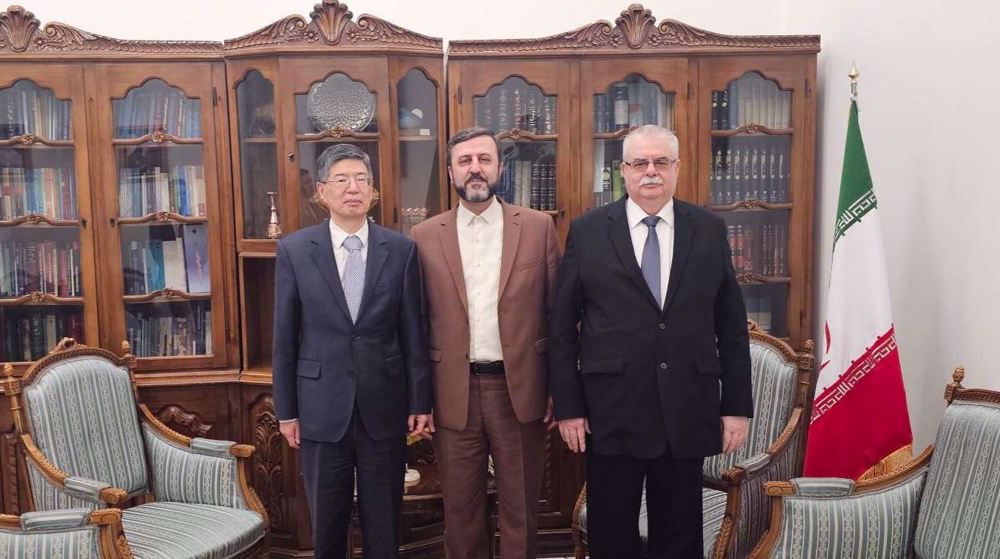
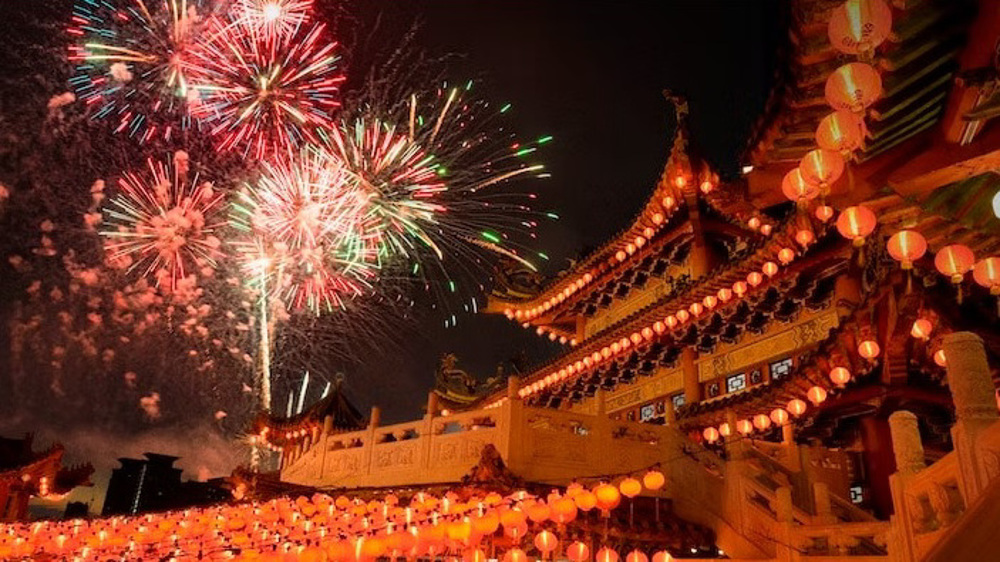
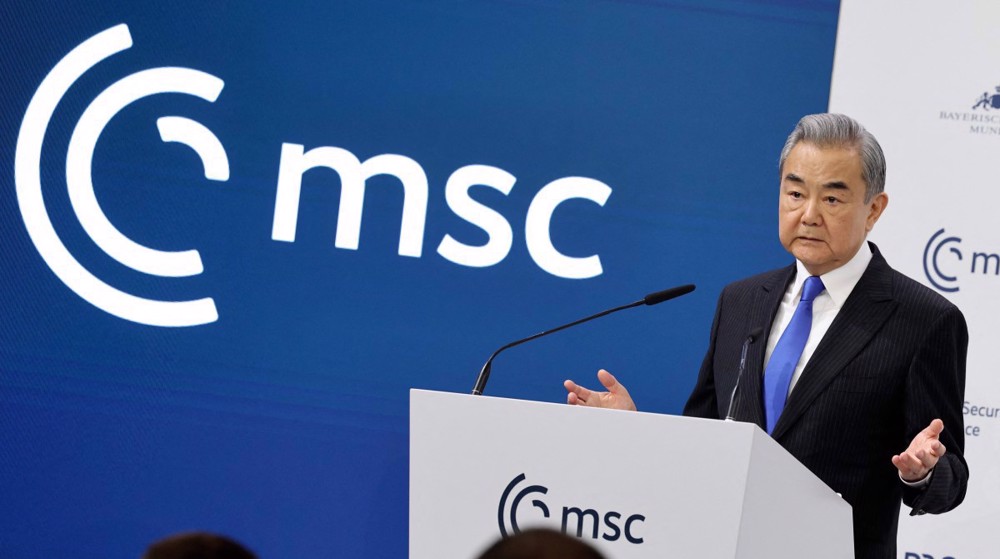



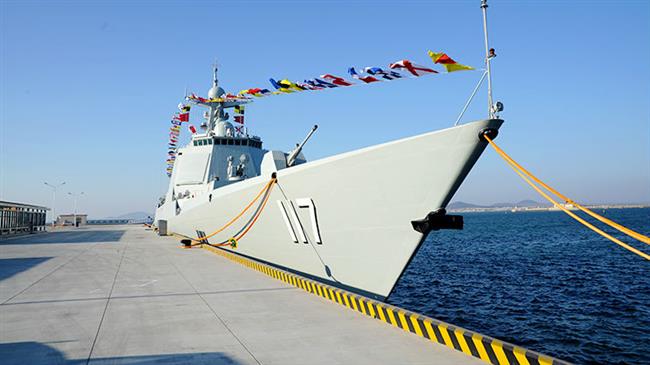
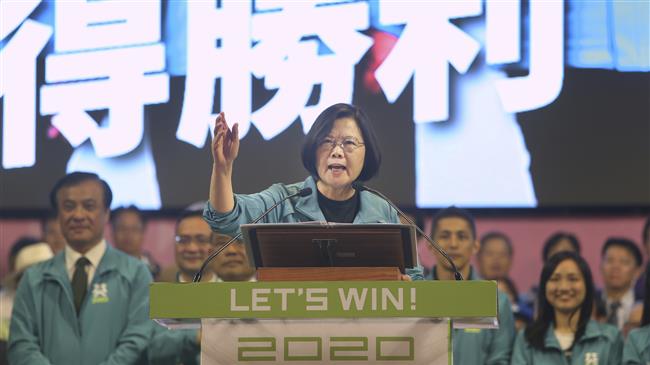
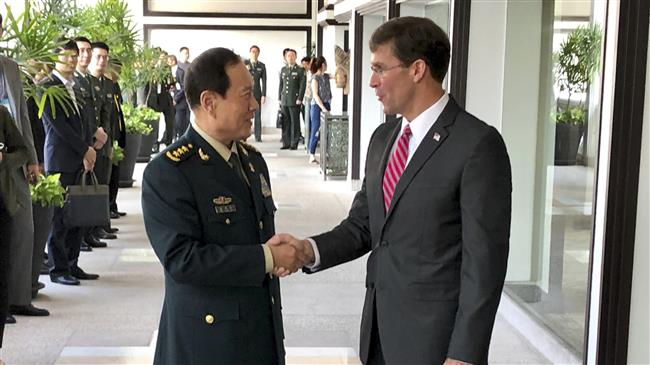

 This makes it easy to access the Press TV website
This makes it easy to access the Press TV website